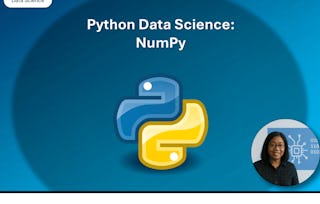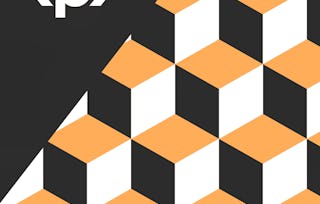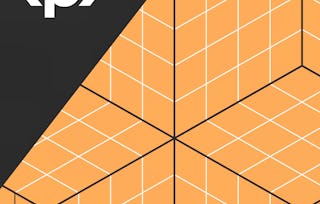Maîtrisez NumPy, un paquetage Python fondamental pour les carrières dans la science des données. Ce cours complet est adapté aux programmeurs novices qui aspirent à devenir des data scientists, des développeurs de logiciels, des analystes de données, des ingénieurs en apprentissage automatique, des ingénieurs de données ou des administrateurs de bases de données. En commençant par des concepts informatiques fondamentaux, tels que la programmation orientée objet et l'organisation des données à l'aide d'ensembles et de dictionnaires, vous progresserez vers des structures de données plus complexes telles que les tableaux, les vecteurs et les matrices. La pratique de NumPy vous permettra d'acquérir les compétences essentielles pour relever les défis du big data et résoudre efficacement les problèmes de données. Vous écrirez des programmes Python pour manipuler et filtrer les données, ainsi que pour créer des informations utiles à partir de grands ensembles de données. À la fin du cours, vous serez capable de résumer des ensembles de données, par exemple en calculant des moyennes, des minimums et des maximums. Tout au long de votre apprentissage, vous utiliserez de nombreux types de structures de données et de techniques analytiques pour une variété de défis de la science des données, y compris les opérations mathématiques, l'analyse de fichiers texte et le traitement d'images. Chaque semaine, des devoirs guidés et progressifs renforceront vos compétences, vous permettant de résoudre des problèmes et de tirer des conclusions basées sur des données de manière indépendante. Préparez-vous à une carrière enrichissante dans la science des données en maîtrisant NumPy et en affinant vos prouesses de programmation. Commencez cette expérience d'apprentissage transformatrice dès aujourd'hui !

Science des données avec NumPy, Sets et Dictionaries

Science des données avec NumPy, Sets et Dictionaries
Ce cours fait partie de Spécialisation Programmation pour la science des données en Python : Des principes à la pratique



Instructeurs : Genevieve M. Lipp
2 832 déjà inscrits
Inclus avec
20 reviews
Expérience recommandée
Compétences que vous acquerrez
- Catégorie : Programmation en Python
- Catégorie : Manipulation de données
- Catégorie : Programmation orientée objet (POO)
- Catégorie : Transformation de données
- Catégorie : Analyse d'images
- Catégorie : NumPy
- Catégorie : Analyse exploratoire des données (AED)
- Catégorie : Optimisation des performances
- Catégorie : Analyse des Données
- Catégorie : structures de données
- Catégorie : Importation/exportation de données
- Catégorie : Science des données
- Catégorie : Big Data
Détails à connaître

Ajouter à votre profil LinkedIn
1 quiz, 3 devoirs
Découvrez comment les employés des entreprises prestigieuses maîtrisent des compétences recherchées

Élaborez votre expertise du sujet
- Apprenez de nouveaux concepts auprès d'experts du secteur
- Acquérez une compréhension de base d'un sujet ou d'un outil
- Développez des compétences professionnelles avec des projets pratiques
- Obtenez un certificat professionnel partageable

Il y a 4 modules dans ce cours
Dans ce module, vous apprendrez les bases de la programmation orientée objet ainsi que l'utilisation des ensembles et des dictionnaires pour stocker et travailler avec des données en Python. Vous appliquerez ces concepts avec Python pour effectuer quelques opérations mathématiques et tâches analytiques, notamment la résolution de problèmes géométriques avec des cercles et le comptage de mots dans un document.
Inclus
10 vidéos5 lectures4 devoirs de programmation
Dans ce module, vous apprendrez à utiliser NumPy, l'un des packages Python les plus utiles en science des données, ainsi que d'autres structures de données, les tableaux, en commençant par le type de tableau le plus simple, un vecteur. Grâce à NumPy et à votre nouvelle compréhension des vecteurs, vous développerez des histogrammes et analyserez les données relatives à la distribution des revenus des ménages aux États-Unis, en tirant vos propres conclusions basées sur les données.
Inclus
1 vidéo9 lectures2 devoirs3 laboratoires non notés
Dans ce module, vous apprendrez tout d'abord comment NumPy gère les données dans votre programme en cours d'utilisation et les copies de vos données. Vous apprendrez ensuite à travailler avec des serveurs d'authentification plus complexes appelés matrices, ainsi que la façon dont vous pouvez sous-ensembler, filtrer et modifier les données dans les matrices. Enfin, vous écrirez vos propres programmes pour manipuler des matrices de données et rendre compte de vos résultats pour un ensemble de données donné.
Inclus
1 vidéo14 lectures1 quiz3 laboratoires non notés
Dans ce module, vous apprendrez à utiliser NumPy pour résumer des données issues de matrices (par exemple, en calculant des moyennes, des minimums, des maximums, etc.) ainsi qu'à commencer à analyser et à manipuler des données d'images. Vous explorerez également deux nouvelles techniques de science des données : comment rendre votre analyse des données matricielles plus efficace en termes de calcul (vectorisation) et comment rendre les données aléatoires (randomisation).
Inclus
1 vidéo12 lectures1 devoir2 laboratoires non notés
Obtenez un certificat professionnel
Ajoutez ce titre à votre profil LinkedIn, à votre curriculum vitae ou à votre CV. Partagez-le sur les médias sociaux et dans votre évaluation des performances.
Instructeurs

Offert par
En savoir plus sur Analyse des Données
 Statut : Essai gratuit
Statut : Essai gratuitLogical Operations
 Statut : Essai gratuit
Statut : Essai gratuitUniversity of Michigan
 Statut : Essai gratuit
Statut : Essai gratuit
Pour quelles raisons les étudiants sur Coursera nous choisissent-ils pour leur carrière ?

Felipe M.

Jennifer J.

Larry W.

Chaitanya A.
Avis des étudiants
- 5 stars
55 %
- 4 stars
20 %
- 3 stars
5 %
- 2 stars
5 %
- 1 star
15 %
Affichage de 3 sur 20
Révisé le 16 août 2025
The course was really very interesting and Was very Useful and The concepts was clear with Implementation

Ouvrez de nouvelles portes avec Coursera Plus
Accès illimité à 10,000+ cours de niveau international, projets pratiques et programmes de certification prêts à l'emploi - tous inclus dans votre abonnement.
Faites progresser votre carrière avec un diplôme en ligne
Obtenez un diplôme auprès d’universités de renommée mondiale - 100 % en ligne
Rejoignez plus de 3 400 entreprises mondiales qui ont choisi Coursera pour les affaires
Améliorez les compétences de vos employés pour exceller dans l’économie numérique
Foire Aux Questions
Pour accéder aux supports de cours, aux devoirs et pour obtenir un certificat, vous devez acheter l'expérience de certificat lorsque vous vous inscrivez à un cours. Vous pouvez essayer un essai gratuit ou demander une aide financière. Le cours peut proposer l'option "Cours complet, pas de certificat". Cette option vous permet de consulter tous les supports de cours, de soumettre les évaluations requises et d'obtenir une note finale. Cela signifie également que vous ne pourrez pas acheter un certificat d'expérience.
Lorsque vous vous inscrivez au cours, vous avez accès à tous les cours de la spécialisation et vous obtenez un certificat lorsque vous terminez le travail. Votre certificat électronique sera ajouté à votre page Réalisations - de là, vous pouvez imprimer votre certificat ou l'ajouter à votre profil LinkedIn.
Oui, pour certains programmes de formation, vous pouvez demander une aide financière ou une bourse si vous n'avez pas les moyens de payer les frais d'inscription. Si une aide financière ou une bourse est disponible pour votre programme de formation, vous trouverez un lien de demande sur la page de description.
Plus de questions
Aide financière disponible,



